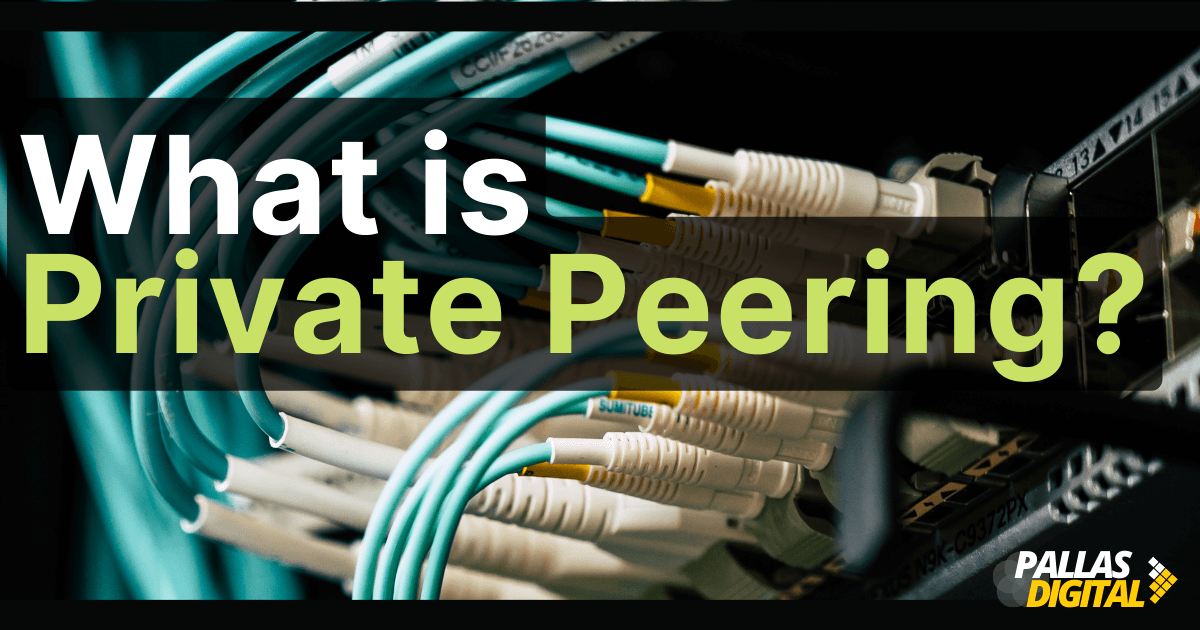As experienced network engineers, we often explore ways to optimize our network’s performance, reliability, and cost-efficiency. Well, private peering is a key player in this arena. Let’s unravel the mystery together.
Who Engages in Private Peering?
Private peering is the domain of entities like internet service providers (ISPs), large corporations, content delivery networks (CDNs), and big web services providers.
These players seek direct or semi-direct connections to exchange traffic between their networks without traversing the public internet. It’s a bit like having a private chat instead of shouting in a crowded room.
This setup is most beneficial for organizations that exchange large volumes of traffic and aim for better control over their network paths.
When Should You Consider Private Peering?
Consider private peering when your network traffic volume hits a point where public peering costs and latency no longer make sense.
It’s not just about the volume, though; it’s also about the type of traffic and your performance requirements. If your organization prioritizes data security, low latency, and high throughput, then diving into private peering might just be timely.
Where Does Private Peering Happen?
Private peering often takes place at colocation centers or data centers where both parties can physically connect their networks.
These locations are equipped with the necessary infrastructure to support such connections, including dedicated ports on a switch that both parties can plug into.
Think of it as a private meeting room within a large conference center. It’s secluded, secure, and set up for serious business.
What Exactly is Private Peering?
At its core, private peering is a bilateral agreement between two networks to exchange traffic directly, bypassing the congested public internet pathways.
This direct connection allows for more reliable and efficient data transfer.
It’s like creating a shortcut between two points, eliminating the need to travel the long route through the busy highways of the internet.
Why Opt for Private Peering?
The main advantages of private peering include improved performance, reduced latency, and cost savings on bandwidth. When you bypass the public internet, you’re not just getting a faster route for your data; you’re also reducing your exposure to DDoS attacks and other security threats.
Moreover, it can significantly cut down transit costs, especially for networks with heavy data exchange requirements.
The Technical Perks of Private Peering
From a technical standpoint, private peering allows for better control over routing policies and improved network performance.
By having a direct connection, networks can manage their traffic flows more effectively, ensuring optimal path selection for their data packets.
It’s like being able to choose the lanes on a highway to avoid congestion and ensure a smooth ride.
The Cost-Benefit Analysis
While setting up private peering involves upfront costs for equipment and colocation services, the long-term savings on transit fees can be substantial.
It’s important to conduct a thorough cost-benefit analysis to determine if private peering is the right investment for your network.
Think of it as deciding whether to build a bridge over a river. The initial investment is high, but the time and cost savings over the long run can justify the expense.
The Evolution of Private Peering
Private peering has evolved significantly over the years. From simple, direct connections between two parties to sophisticated, multi-lateral arrangements involving multiple networks, the landscape of private peering is constantly changing.
With advancements in technology and the growing demand for bandwidth, private peering has become an essential strategy for networks looking to stay competitive.
Navigating the Challenges
However, private peering is not without its challenges. Negotiating agreements, managing connections, and resolving technical issues require significant expertise and resources.
Interested in How to Get Impossible Private Peerings?
It’s crucial to be prepared for the complexities of establishing and maintaining private peering relationships.
Does Private Peering Make Sense for You?
Private peering is a powerful tool for networks that demand high performance, security, and cost efficiency.
Whether you’re an ISP, a large corporation, or a content provider, understanding and leveraging private peering can significantly enhance your network’s capabilities. It’s a journey worth exploring for those ready to take their network to the next level.
For more in-depth information, consider visiting resources such as the Internet Exchange Point (IXP) directory at PeeringDB, which provides a comprehensive database of peering locations and participants.
Additionally, the Internet Society offers insightful resources on internet infrastructure, including private peering.
Happy peering!

